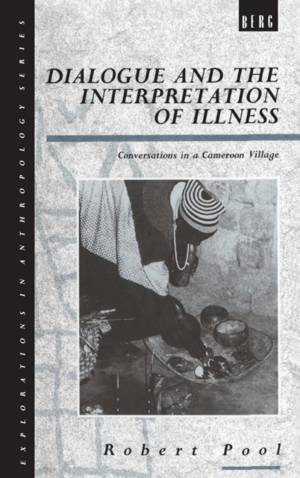
Je cadeautjes zeker op tijd in huis hebben voor de feestdagen? Kom langs in onze winkels en vind het perfecte geschenk!
- Afhalen na 1 uur in een winkel met voorraad
- Gratis thuislevering in België vanaf € 30
- Ruim aanbod met 7 miljoen producten
Je cadeautjes zeker op tijd in huis hebben voor de feestdagen? Kom langs in onze winkels en vind het perfecte geschenk!
- Afhalen na 1 uur in een winkel met voorraad
- Gratis thuislevering in België vanaf € 30
- Ruim aanbod met 7 miljoen producten
Zoeken
€ 195,95
+ 391 punten
Omschrijving
The etiology of the Wimbum people in the Western Grassfields of Cameroon is described through an examination of the way in which the meanings of key concepts, used to interpret and explain illness and other forms of misfortune, are continually being produced and reproduced in the praxis of everyday communication.
Specificaties
Betrokkenen
- Auteur(s):
- Uitgeverij:
Inhoud
- Aantal bladzijden:
- 298
- Reeks:
Eigenschappen
- Productcode (EAN):
- 9780854968732
- Verschijningsdatum:
- 11/05/1994
- Uitvoering:
- Hardcover
- Afmetingen:
- 138 mm x 216 mm
- Gewicht:
- 710 g

Alleen bij Standaard Boekhandel
+ 391 punten op je klantenkaart van Standaard Boekhandel
Beoordelingen
We publiceren alleen reviews die voldoen aan de voorwaarden voor reviews. Bekijk onze voorwaarden voor reviews.









